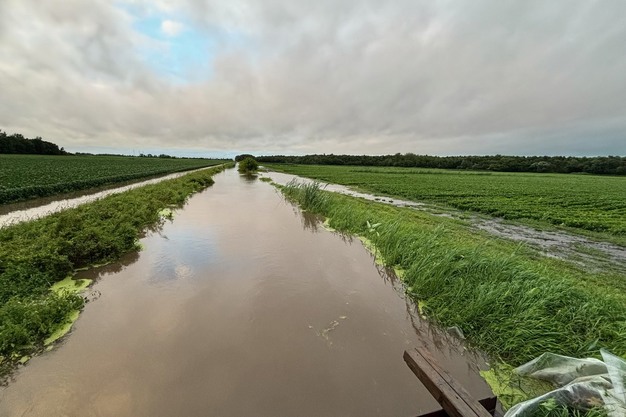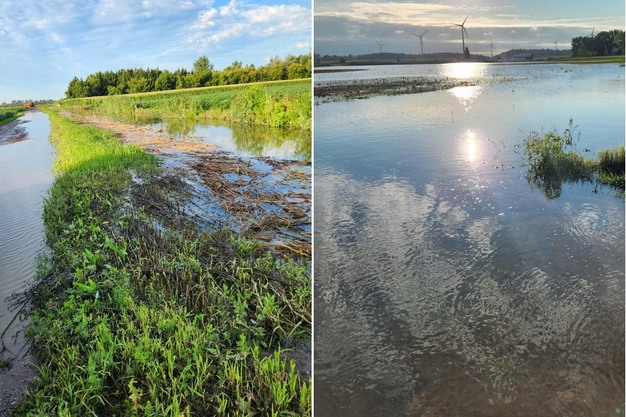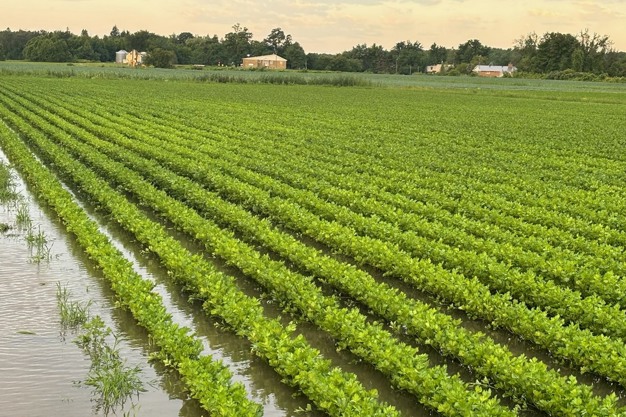Following recent heavy rainfalls in parts of Quebec, Canada, produce growers and shippers in the region are reflecting on how crops and markets were impacted.
 Photo: Le Potager Riendeau Inc.
Photo: Le Potager Riendeau Inc.
"The rain was quite a headache," says Patrice Riendeau of Le Potager Riendeau Inc. "We received +/- 100 mm in our area while some places north of Montreal received 220mm. All of southern Quebec was affected, so pretty much all farmlands. Streets were closed, traffic was everywhere, and it was a nightmare for deliveries."
Riendeau says pretty much all commodities were affected. "For some, it was a race to harvest (beans, tomatoes, etc) before their crops started to spoil. Some couldn't even enter their fields two to three days after the rain because it was too damp," he says, adding that for Le Potager Riendeau, celery and onions weren't affected though lettuce was. "Yields went down and the quality overall was affected. Prices did not rise much because of the U.S. market pressure."
 Photo: Eagle Export
Photo: Eagle Export
Second year of rain
At Eagle Export, Alex Zenebisis says the rain is history repeating itself. "It's very concerning that we are faced with all these weather adversities year after year. We've had this new higher volume of rainfall situation to deal with for two consecutive years," he says. "Although this year is a drastic improvement from the situation we went through last summer, this year is not a cakewalk."
He says since it hasn't been raining every day like it did last year, that has allowed the land to drain and dry out and also allowed the growers to plan and get to their crops around the deluges.
 Photo: Le Potager Riendeau Inc.
Photo: Le Potager Riendeau Inc.
"A lot of growers have implemented a strategy of seeding on taller and bigger bumps of earth in the fields to protect the seedlings from being drowned in deep water caused by increased rainfall volume," says Zenebisis. "However in the black earth regions, this strategy doesn't work as well because the black earth doesn't hold up as sturdy as the clay and sand do against water."
So for now, companies like EagleXport are practicing flexibility. "We try to buy out of regions experiencing less troubles than others," he says. "We try to have good relations with as many growers as possible from as many growing areas as close to us as possible, so we can pick and choose the best of what is available. We also try to support our growers as much as possible but if something is not available, then we push to sell whatever is available."
For more information:
Patrice Riendeau
Le Potager Riendeau Inc.
Tel: +1 (450) 454-9091
patricer@potagerriendeau.com
Alex Zenebisis
Eagle Export, Inc./Alcaro Farms
Tel: +1 (450) 992-0521
alex.zenebisis@eaglexport.ca
www.eaglexport.ca
